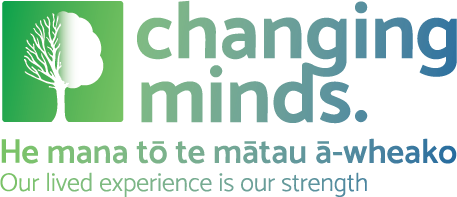Interpreting And Applying The MHA To Enhance Human Rights
Sarah, a person with Lived Experience, and Giles a psychiatrist, have asked the High Court to make declarations that will require the Mental Health Act to be interpreted in a way that enhances human rights.
The Court is hearing their arguments in Wellington on 13 and 14 February 2023.
Overview of the case:
What is the name of the case and what does it mean?
The name of the case is Gordon and Newton-Howes v the Attorney-General of New Zealand and the Director-General of Health.
This means that [Sarah] Gordon and [Giles] Newton-Howes have asked the court, and are arguing, for some declarations to be made by the Court.
The Attorney-General of New Zealand (on behalf of the government in the court) the Director-General of Health (who issued Guidelines on the Mental Health Act) are the people that are responsible for responding to the application that Sarah and Giles have made to the Court.
What is a declaration?
A ‘declaration’ is a a remedy that can confirm the scope of the rights, duties, or obligations of one or more parties in a civil dispute. The power the Judge has to do this comes from the Declaratory Judgments Act 1908.
Declarations can be applied to disputes about how public statutes or regulations are interpreted and applied – which is what is happening in this case.
Who are Sarah and Giles?
Sarah and Giles are bringing two important perspectives to their arguments. Sarah is applying as a person with experience of psychosocial disability and a mental health services consumer who, at times when she is most unwell, could be subject to the Act. Giles is applying as a practicing psychiatrist. They also both happen to be Associate Professors with the University of Otago. Find out more about Sarah and Giles here.
What are Sarah and Giles asking?
Giles and Sarah are asking the Court to make declarations for the Mental Health Act to be interpreted and applied in a way that enhances the human rights of those of us who experience ‘psychosocial disability’ (othertimes referred to as mental distress, mental illness, mental disorder).
More specifically, they are asking the court to state that:
If a person has the decision-making skills/mental capacity to make decisions about their mental health then their decisions should be respected and not overruled by using the MHA.
Where the Mental Health Act says that patients subject to a compulsory treatment order shall, subject to certain exceptions, only receive treatment if they have consented to it:
i. Consent should mean “informed consent”;ii. Treatment will never be in the interests of the patient in circumstances where they have the decision-making skills/mental capacity to make the decision
about treatment or ECT, and they refuse consent.
A child or young person under the age of 16 year may give valid and effective consent to medical treatment if they have the decision making skills/mental capacity to make the decision.
A valid Advance Directive is legally binding and must be complied with. The Mental Health Act should not be able to overrule a valid Advance Directive; and
There is insufficient evidence that compulsory community treatment orders are effective or benefit patients subject to them.
But isn’t there a process to repeal and replace the Mental Health Act?
Yes, absolutely there is and Sarah and Giles fully support that. However, they seek to enhance the human rights of people in psychosocial distress, over the next few years while transformative law reform is underway.
If successful, is what you are doing sufficient in terms of the Mental Health Act?
No. There are lots of things that are needing to be taken into account through the repeal and replace process – including, as a core principle, the inclusion of Te Tiriti o Waitangi.
These proceedings are not intended to in any way interfere with a proper, consultative, considered law reform process.
They are to make things as good as they can be, from a human rights perspective, within the current legal framework, which everyone accepts is now out of date and needs to be replaced.
The Hearing:
The Court will hear the arguments in the High Court of NZ (Wellington) on the 13th and 14th February.
It will be an open court which means that anyone can come along to watch and hear.
Sarah and Giles are keen for people to come along if they are able. If not, they are committed to making sure people are kept informed throughout in as timely a manner as they are able to facilitate.
Some of the Changing Minds team will be heading along to help share updates with the community.
If you would like to come to the hearing to watch, learn or support:
Hearing will start at 10am on 13 February 2023.
It is scheduled to take two days (13 and 14 February).
It will be heard at the Wellington High Court, 2 Molesworth Street, Wellington.
Changing Minds will update the Lived Experience community when the room number is confirmed.
Recently, Sarah and Giles have been awarded New Zealand’s first ‘protective costs order’ which means that even if their application is unsuccessful, they will not be required to pay the legal costs of the Crown in defending these proceedings. This shows confirmation by the Court that these proceedings are of significant public interest. Without this, this case would be very expensive. Sarah and Giles are also lucky to be represented by Iris Reuvecamp of Vida Law who is acting pro bono.
Disclaimer:
Changing Minds is not a party of this case. But, as an organisation proudly lead by, and for Tāngata Mātau ā-wheako (people with Lived Experience of mental distress and/or addicition), we are providing communication and awareness support to Sarah and Giles to raise awareness of this important kōrero so that the Lived Experience community are prioritised in understanding and accessing this information.
If you have any questions please out to communications@changingminds.org.nz in the first instance.

